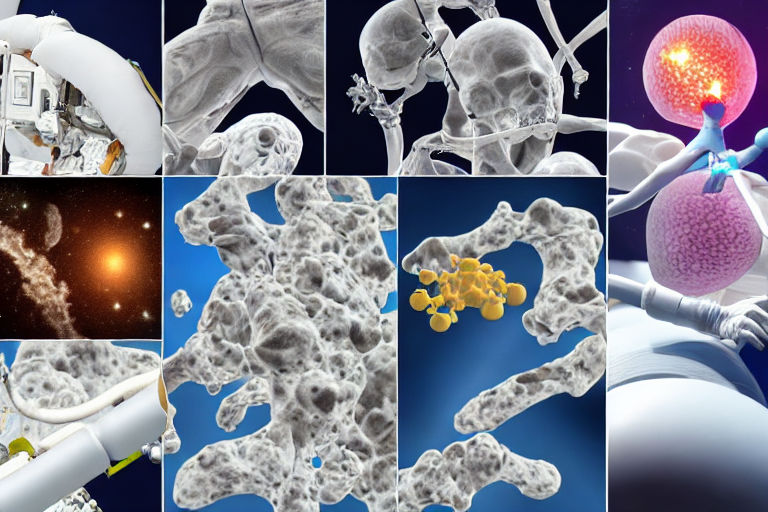The Long-Term Effects of Microgravity on Human Health
The effects of microgravity on human health have been extensively researched by space agencies for decades. Microgravity, or reduced gravity, is a unique environment where gravitational pull is significantly weaker than on Earth. While space travel and long-duration space missions have yielded numerous benefits to humans, such as revolutionary technological advancements and scientific discoveries, scientists have also identified a range of long-term effects of microgravity on human physiology and health.
The Skeletal System
- Microgravity affects bone loss and density, ultimately leading to osteoporosis.
- Without proper countermeasures such as resistive exercise, astronauts can lose bone density at a rate of up to 1-2% per month.
- Studies have shown astronauts who have spent extended periods in space are at a higher risk of fractures, especially in the hip and spine.
The Cardiovascular System
- Microgravity causes fluid to shift from the lower body to the upper body, resulting in a decrease in blood volume and pressure in the legs and an increase in blood volume and pressure in the head and torso.
- This can lead to orthostatic hypotension, a temporary drop in blood pressure when standing up.
- Long-term exposure to microgravity can also cause cardiac atrophy, a condition in which the heart decreases in size and mass as a result of decreased workload.
The Immune System
- Studies have shown that prolonged exposure to microgravity can suppress the immune system, making astronauts more susceptible to infections and illnesses.
- Exposure to cosmic radiation and other space-related health hazards can further compromise the immune system.
The Nervous System
- Microgravity can cause physiological and behavioral changes in the central nervous system, such as decreased muscle tone and coordination, changes in eye-hand coordination, and increased sensitivity to motion sickness.
- Sleep disturbances are also common in astronauts due to the absence of normal 24-hour light-dark cycles in space.
The Digestive System
- Microgravity has been shown to affect the digestive system, causing loss of appetite, nausea, and other gastrointestinal issues.
- Space food, which is often processed and packaged, can also compound digestive problems and contribute to decreased nutrient absorption, constipation, and other issues.
Conclusion
In summary, the long-term effects of microgravity on human health are extensive and require careful consideration in order to ensure the safety and well-being of astronauts. Further research is necessary to develop countermeasures and technologies that can mitigate the effects of microgravity on human physiology and health, particularly as space travel and exploration become increasingly common and necessary for humanity's future.



